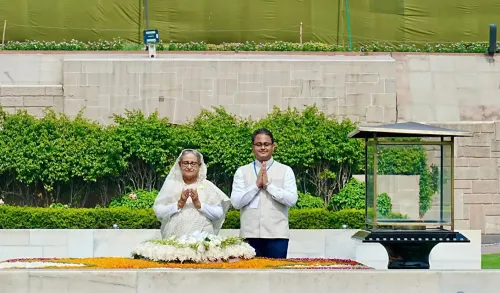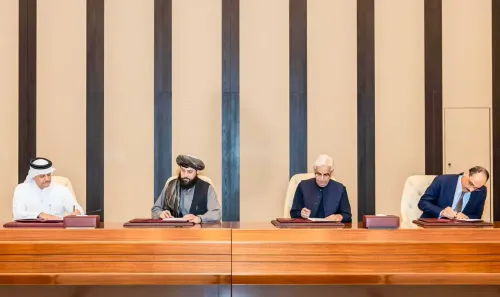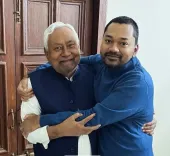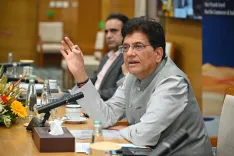What Are the Implications of the 27th Constitutional Amendment in Pakistan?

Synopsis
Key Takeaways
- The TTAP protest highlights significant opposition to the 27th Constitutional Amendment.
- Nationwide 'Black Day' planned to raise awareness of constitutional issues.
- Freedom of expression concerns are central to the protests.
- Key political figures are actively involved in mobilizing public sentiment.
- Potential for these events to reshape Pakistan's political landscape.
Islamabad, Nov 18 (NationPress) The joint opposition coalition known as Tehreek Tahaffuz-e-Ayeen-Pakistan (TTAP) vehemently condemned the 27th Constitutional Amendment during a protest rally that stretched from the Parliament House to the Supreme Court in Islamabad on Tuesday. Alliance leaders announced plans to observe a nationwide 'Black Day' on Friday in response to what they described as “persistent constitutional violations” taking place in Pakistan, as reported by local media.
In a statement to reporters, TTAP member Allama Raja Nasir Abbas emphasized that the march illustrated their commitment to the “safeguarding” of the Constitution. He remarked, "We traversed the distance from parliament to the Supreme Court to underscore how all pathways to justice have been obstructed for the populace of Pakistan," according to Geo News.
Allama Abbas voiced concerns that freedom of expression is facing severe suppression in Pakistan. "Citizens have been muted, fundamental human rights are being trampled upon, and we will continue to raise our voices as long as we are alive," he asserted.
This protest rally by TTAP follows the signing of the 27th Constitutional Amendment Bill by President Asif Ali Zardari on November 13, which had received approval from both chambers of Parliament. Following the President's endorsement, the bill has been incorporated into the constitution.
On the preceding Monday, members of the Pakistan Tehreek-e-Insaf (PTI) staged a march from the Punjab Assembly to Charing Cross on the Mall, protesting against the 27th Constitutional Amendment.
After submitting a requisition at the Punjab Assembly to initiate a debate on the Amendment, PTI members, led by Salman Akram Raja, carried party flags and placards stating, "We reject the 27th Constitutional Amendment" during their march.
While addressing the demonstrators, Salman Akram Raja criticized the amendment, asserting that the judiciary had been targeted and added that a subservient judiciary cannot serve the interests of the marginalized, as highlighted by Pakistan's leading daily, Dawn.
He emphasized that PTI stands firmly for the respect and integrity of the judiciary, declaring, "PTI will not remain silent and will persist in advocating for the restoration of judicial respect, the release of our founder chairman Imran Khan from incarceration, and for the nation as a whole."
On November 16, activists of the Pakistan Awami Tehreek (PAT) political party, along with their women’s wing Sindhiyani Tehreek (ST), protested against the 27th Constitutional Amendment, corporate farming, new canals on the Indus River, honor killings, and the exploitation of Sindh province's resources.
The march commenced at Jail Road and concluded at the local press club, where various leaders addressed the crowd, as reported by Dawn. During the address, PAT President Vasand Thari labeled the 27th Amendment as “more detrimental than the post-hybrid system and an assault on democracy.” He accused the ruling authorities of distorting the Constitution, suspending fundamental rights, and subjugating the judiciary via the 27th Amendment, thereby allowing unchecked plundering of Sindh's mineral and other resources.









